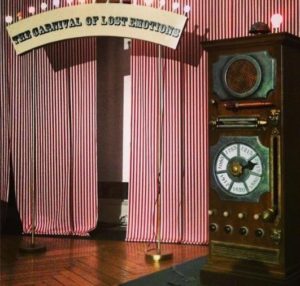The next Queen Mary Centre for the History of the Emotions work in progress seminar will take place on Wednesday 8 June. As previously announced, the talk scheduled for 25 May has been postponed. Visit https://projects.history.qmul.ac.uk/emotions/events/lunchtime-work-in-progress-seminars-2/ for this term’s full schedule.
“The Nerves of the Soul”. Emotional Knowledge between Music Aesthetics and Medicine (1740-1880)
Dr. Marie Louise Herzfeld-Schild, University of Cologne
Wednesday 8 June, 1pm (lunch provided from 12.45)
In this talk I will introduce my research issues and present several examples from different decades between 1740 and 1880 to demonstrate important and interesting milestones in the development of the discourses between music aesthetics and medicine of this time period. I aim to show a mutating interaction between the disciplines, starting with a fruitful interaction and exchange of musical and emotional knowledge between aesthetics and medicine in the middle of the 18th century that by and by changed to rejection, ignorance or the declaration of irrelevance in the course of the 19th century.
This very recent research project is concerned with the transformation of knowledge about the emotional effects of music between music aesthetics and medicine in the 18th and 19th centuries. It examines inner-disciplinary and inter-disciplinary discourses that deal with the question of how the sensory perception of music could lead to affections, emotions, feelings. Therefore, historical knowledge about the operating modes of the ear, the nervous system and the brain is as relevant for my research as ideas about the interaction of body and soul, the understanding of emotions in general and aesthetic conceptions of music.
The talk will take place in the Arts One building, Room 2.07 at Queen Mary University of London, Mile End Road, London E1 4NS.
For travel directions and a campus map, visit: http://www.qmul.ac.uk/about/howtofindus/mileend/

